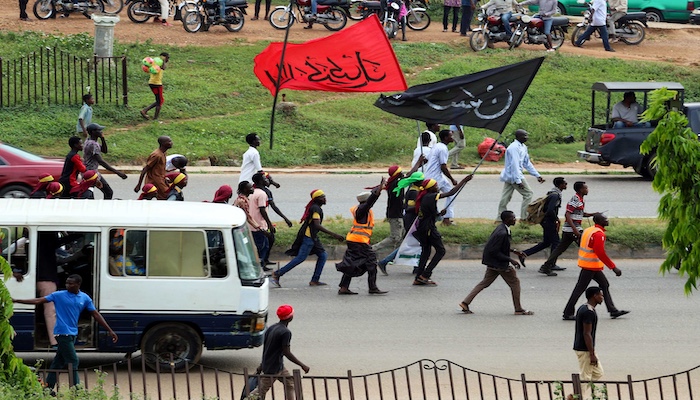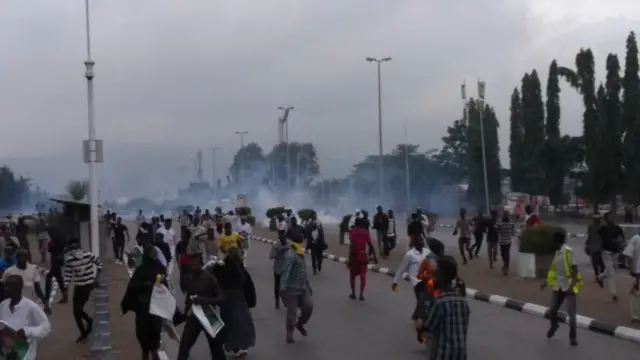
Nigerian soldiers clash with Shi’ite protesters in Abuja during Palestine solidarity march, leaving multiple dead and wounded.
Abuja, Nigeria – At least five members of the Islamic Movement in Nigeria (IMN), a prominent Shi’ite organization, were reportedly killed on Friday during a violent confrontation with Nigerian Army personnel in Abuja. The incident occurred during the group’s annual Quds Day procession, held in solidarity with Palestinians amid the ongoing Gaza conflict.
Background: The Islamic Movement in Nigeria
The IMN, Nigeria’s largest Shi’ite organization, has faced decades of government crackdowns, particularly under the administration of former President Muhammadu Buhari. The group, inspired by Iran’s Islamic Revolution, has long advocated for Shi’ite rights in Nigeria’s predominantly Sunni Muslim north. Its leader, Sheikh Ibrahim Zakzaky, was detained for years following a 2015 clash with the military in Zaria, Kaduna State, which left hundreds dead.
Despite periodic bans and military repression, the IMN continues to organize protests, particularly on Quds Day—an annual event initiated by Iran’s Ayatollah Khomeini to express support for Palestine.
Friday’s Violence: How It Unfolded

The procession began peacefully after Friday prayers at a mosque near Banex Plaza in Wuse 2. Witnesses said the protesters, including women and children, marched toward Wuse Market, chanting pro-Palestine slogans. However, the situation escalated when soldiers in armored vehicles blocked their path near Julius Berger Bridge and opened fire.
Eyewitnesses reported seeing at least five bodies, with many more injured. Sheikh Abdulrahman Sokoto, an IMN spokesperson, accused the military of an unprovoked attack:
“The Army blocked the procession with an armored vehicle and started shooting at unarmed protesters. Many sustained life-threatening injuries, and some lost their lives.”
Security Alert Preceded Clash
The violence followed a U.S. Embassy security alert warning of potential unrest in Abuja. While the advisory did not specifically mention the Shi’ite procession, heavy military deployments were seen around key locations, including the National Mosque and the National Christian Centre.
Army’s Response: Claims of Provocation
The Nigerian Army acknowledged the confrontation but blamed the IMN for instigating the violence. Major General Onyema Nwachukwu, the Army’s spokesman, stated:
“The Shi’ites became violent, disrupted public order, and engaged troops. There was an exchange of fire, but I cannot confirm casualties.”
Global Context of Quds Day
Quds Day rallies are held worldwide, including in the U.S., UK, France, and across the Middle East. The IMN emphasized that their procession was part of this global movement, condemning what they called “state brutality” against peaceful demonstrators.
Uncertain Toll and Rising Tensions
The exact number of casualties remains unclear, but the incident has reignited concerns over Nigeria’s handling of Shi’ite protests. Human rights groups have repeatedly accused security forces of excessive force against the IMN, which remains banned as a “terrorist organization” despite court rulings ordering its recognition.
What Next?
With tensions high and conflicting narratives, calls for an independent investigation are likely. Meanwhile, the IMN vows to continue its activism, signaling further potential confrontations with Nigerian authorities.




